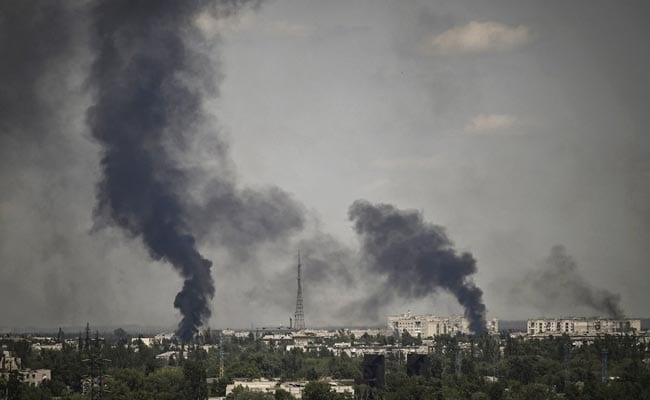
The IMF committee also urged Russia its stop war against Ukraine.
Russia's war in Ukraine is the "single most important element" slowing economic growth and generating global instability, the chair of a key IMF committee said on Friday.
Nadia Calvino's remarks came as finance ministers and central bankers gathered in Washington for the IMF and World Bank annual meetings, which focused on the war, soaring inflation and the climate crisis.
There has been a "very strong call" throughout the week for Russia to stop its war against Ukraine, said Calvino, who is chair of the International Monetary and Financial Committee and also Spain's economy minister.
"The war is the single most important element slowing down growth and generating inflation, volatility, energy and food insecurity and uncertainty," she told a press conference, describing peace as a key economic policy tool.
But the committee, which Russia is involved in, failed to reach an agreement on a communique as Russia blocked a consensus, Calvino added.
Instead, she issued a chair's statement recognizing that the pandemic and war were "weighing heavily on economic activity" with significant impact on livelihoods.
The statement also said countries welcomed voluntary contributions to facilitate financial assistance to Ukraine.
On Thursday, the Group of 20 major economies closed talks in Washington without issuing a joint communique either, as in its last two gatherings, with the group also divided over Russia's invasion and as a US-Saudi feud intensified.
"Stop the war... Wouldn't you be thinking that this is a more straightforward way to get the world economy in better shape?" IMF chief Kristalina Georgieva asked at the Friday press briefing.
This week, the International Monetary Fund said more than a third of the global economy is headed for contraction this year or next, cautioning that the three biggest economies will continue to stall.
The fund trimmed its world growth forecast to 2.7 percent in 2023, and its chief economist Pierre-Olivier Gourinchas cautioned that the next year would feel like a recession for many people.
Throughout its meetings of financial chiefs this week, the crisis lender stressed that the priority was for central banks to continue tightening monetary policy to rein in inflation, and for governments to keep their budgets tight.
(Except for the headline, this story has not been edited by NDTV staff and is published from a syndicated feed.)
from NDTV News- Special https://ift.tt/6H2Qrbw https://ift.tt/LVcDFbW
via IFTTT
Comments
Post a Comment